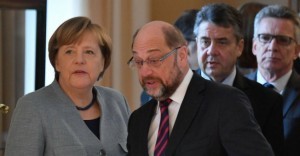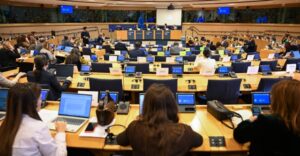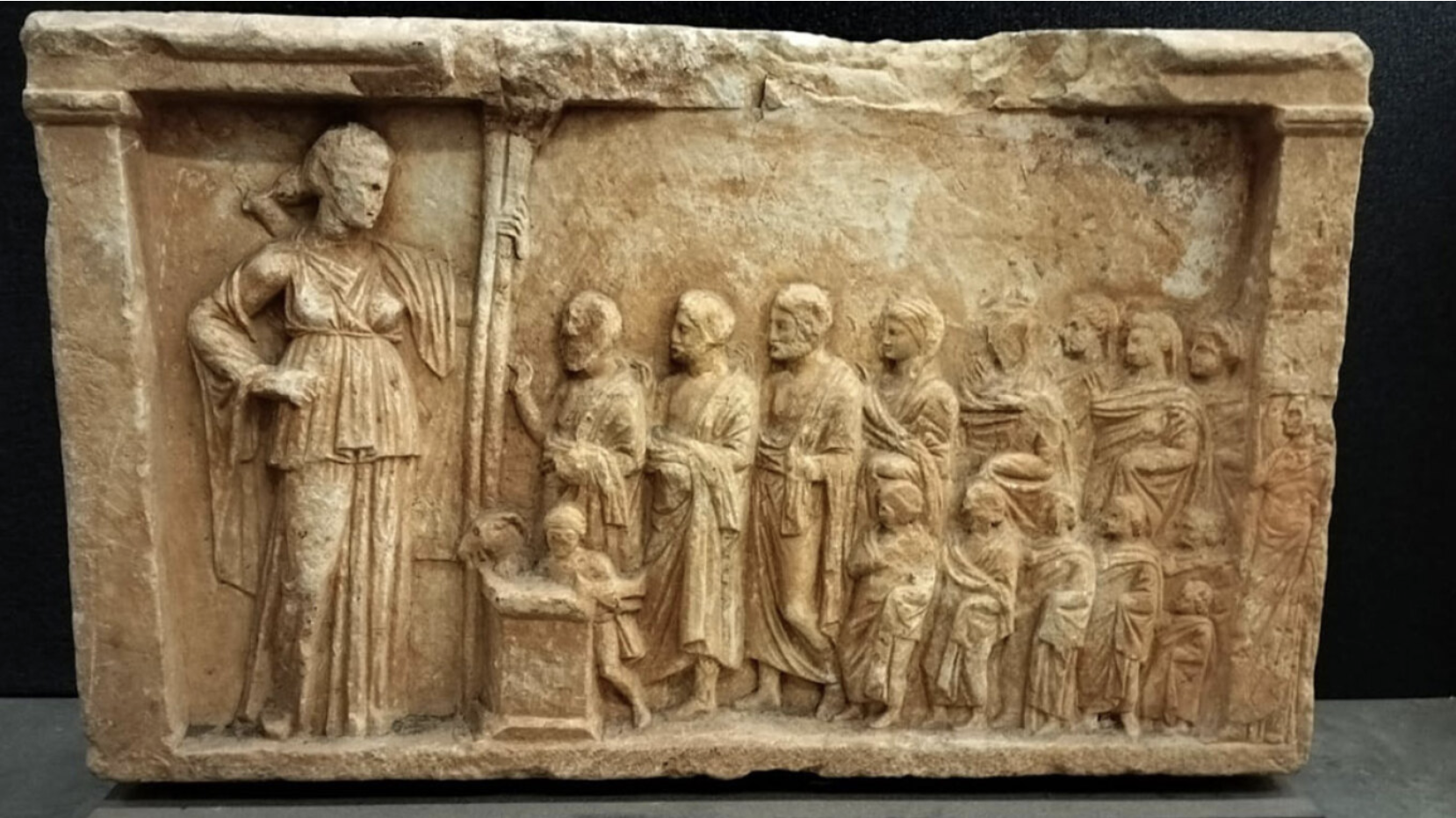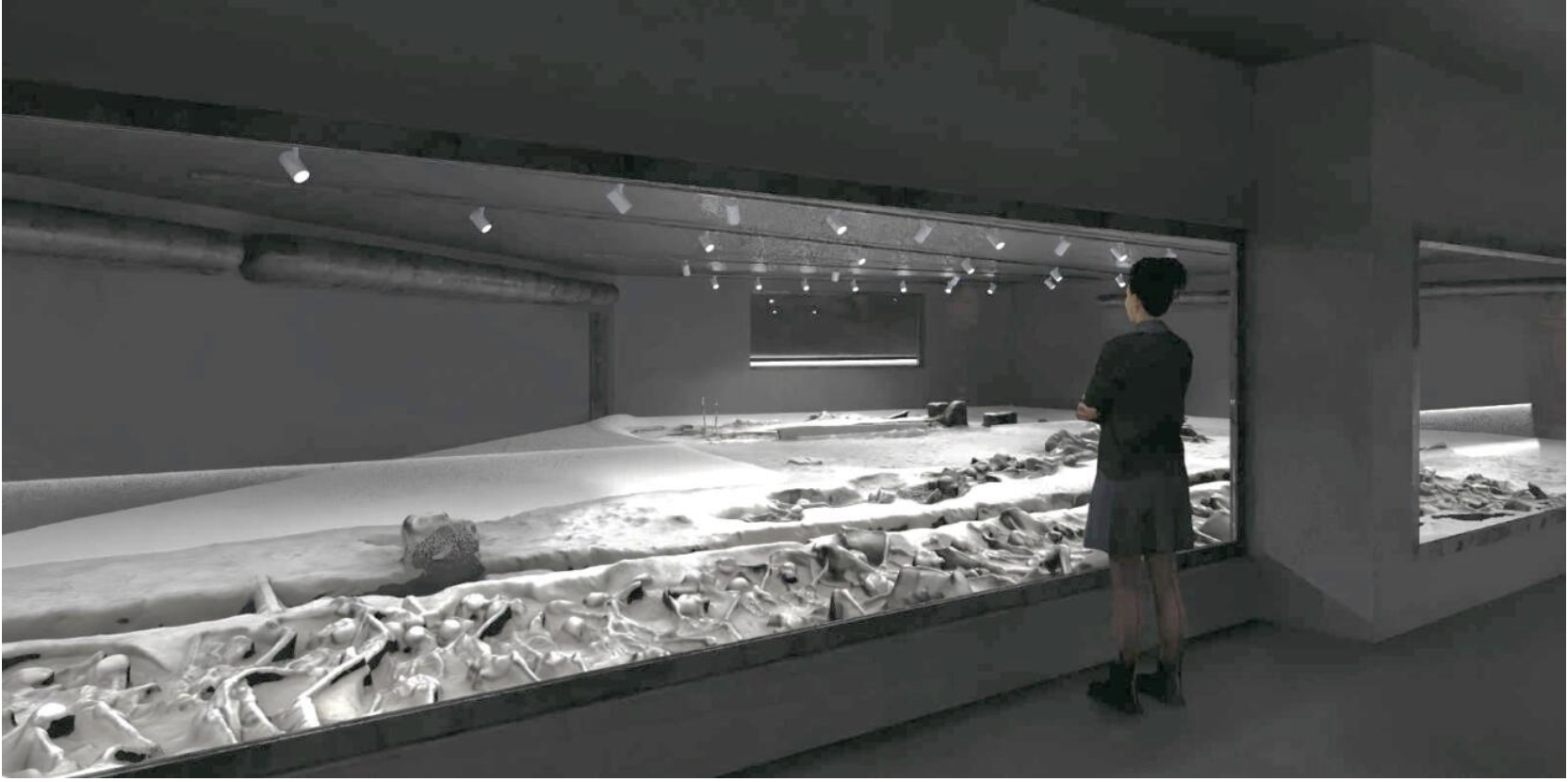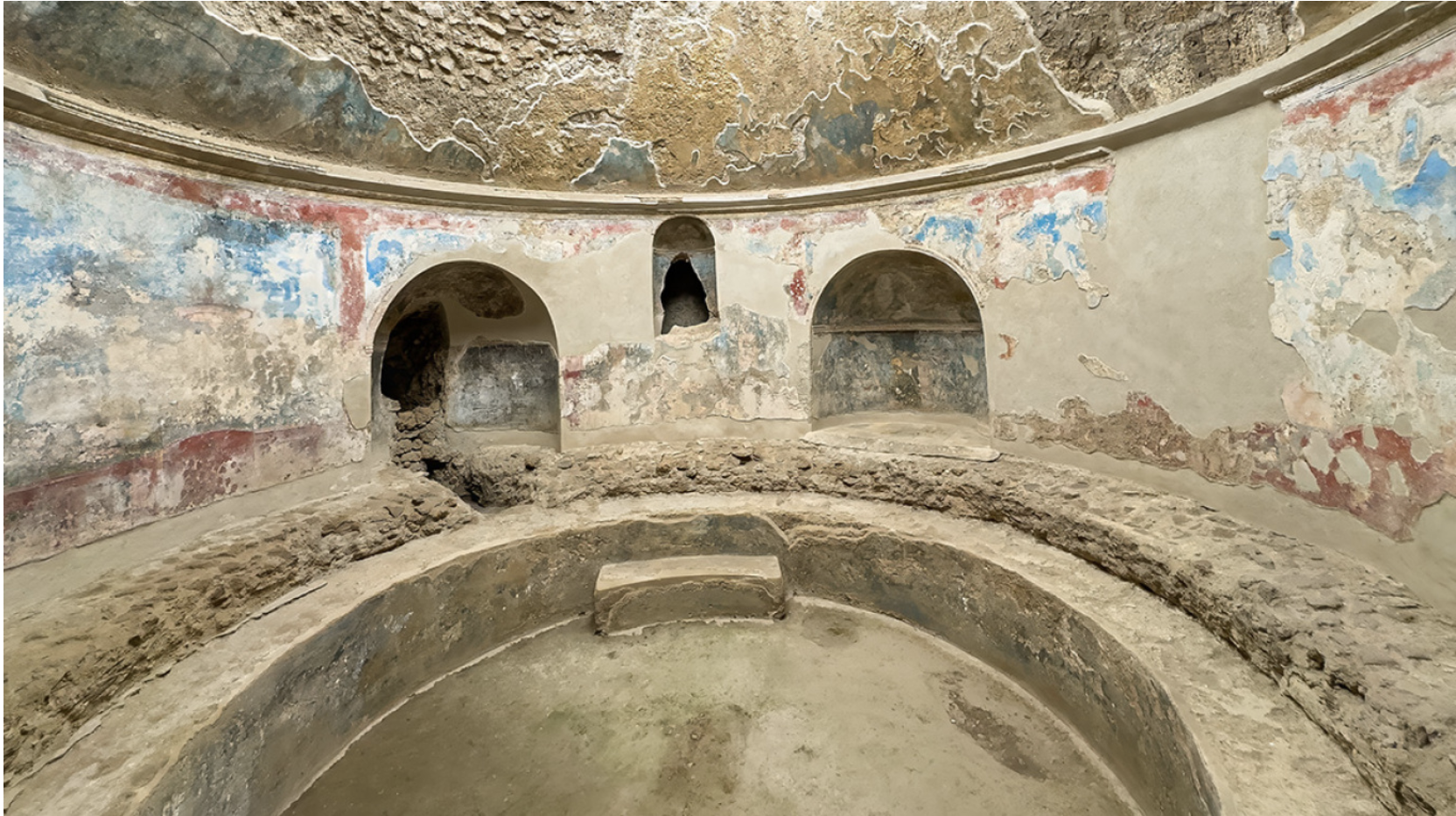German Chancellor Angela Merkel’s conservatives reached a “breakthrough” deal Friday with the country’s second biggest party, the Social Democrats, toward building a new coalition government, sources close to the negotiations said.
After more than 24 hours of talks, party chiefs reached an in-principle deal to start formal coalition talks that could lead in the coming months to a new government for the biggest EU economy, the sources told AFP.
In the all-night talks in Berlin, the party chiefs -Merkel of the Christian Democrats as well as Social Democrats (SPD) leader Martin Schulz and the head of Merkel’s Bavarian allies, Horst Seehofer- and their negotiators hammered out a 28-page joint paper that will form the basis for the talks ahead.
Potential pitfalls remain, including votes by sceptical SPD delegates and later the labour party’s rank-and-file members that could yet give the thumbs down to another left-right “grand coalition”, the constellation that has ruled Germany for the past four years.
Germany has been in political paralysis since a September 24 election in which Merkel failed to win a clear majority – in part due to the rise of the right-wing and anti-immigration Alternative for Germany (AfD) which took millions of votes from all major parties.
Merkel initially turned to two smaller parties, the Free Democrats and Greens, to form a new coalition government for her forth term, but when those talks collapsed in November, she had to once more woo a reluctant SPD for a new power pact.
Marathon talks
Both Merkel and Schulz went into the talks Thursday warning of “big obstacles” ahead, and major sticking points in the red-eye negotiations that followed were immigration, finances and health policy, sources said.
Everything was at stake for Merkel and the other party leaders in the marathon talks.
“The negotiations are not just about a coalition, but also their careers,” said Karl-Rudolf Korte of Duisburg-Essen University. “It would be the end for all three if this coalition does not come about.”
Germany’s rude economic health has stood in stark contrast to the political paralysis which has entered a fourth month, with Merkel currently running a caretaker government.
In fact the political talks were tripped up by the country’s strong finances, as parties had opposing views on how to spend the cash.
The SPD, seeking to push its social welfare agenda, is demanding greater relief for the lower and middle income brackets and tax hikes for top earners, while the conservatives had campaigned with a promise of “tax cuts for all”.
The embattled mainstream parties are also struggling to fend off the encroaching right, which has seized on anger and fears over a mass influx of refugees and netted a record showing at the September poll.
To halt a hemorrhage to the AfD, Merkel’s alliance wants a tougher stance on immigration, something that is hard to sell to the SPD.
“SPD mood grim”
A new coalition deal can still be torpedoed when SPD delegates, and later rank-and-file members, get to vote on whether the party should once again govern in Merkel’s shadow.
Scepticism is high after the SPD scored a humiliating result in September.
The SPD’s youth wing chief Kevin Kuehnert has vowed to embark on a national tour to press his case to opposing a new grand coalition before a September 21 party congress.
“The mood of the party rank and file with regards to a grand coalition is still grim. That’s why I think we have a good chance,” said Kuehnert.
Opinion polls suggest most Germans are less than enthusiastic about a new conservative-SPD alliance.
A survey published by Focus magazine found that only 30 percent of Germans favour a return of the grand coalition, while 34 percent prefer new elections.
Another poll published by public broadcaster ARD found that only 45 percent viewed a new grand coalition positively, while 52 percent did not.
Source: france24.com
Ask me anything
Explore related questions
